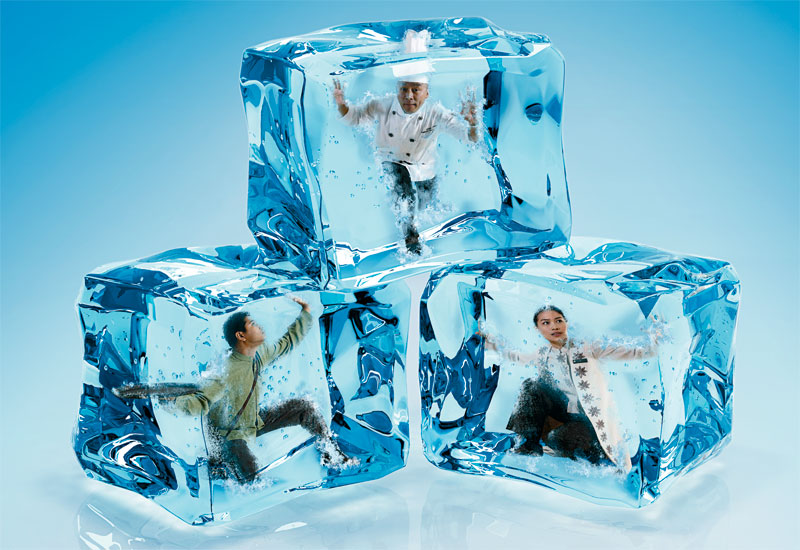We as a company believe, and it is my own personal opinion too, that you have to have an authentic chef — so a Japanese restaurant should have a Japanese chef, an Italian restaurant should have an Italian chef.
I see a lot of restaurants in Dubai that do a certain type of cuisine and yet they don’t have a chef from that country, and I think you can taste that in the end product.
What we see as well is that within the company is that empowerment and decision-making skills are really important, so that personality and competency is what we’re looking for.
Pishiri: At the moment, one category it’s difficult to hire people in is Arabic waiters. We have an Arabic restaurant and it is very important to stay authentic, as Ruben said, so we try to find Arabic service staff. But finding Arabic staff has been a real challenge.
Of course we don’t want to differentiate between employees doing the same job with regards to pay, so we have a salary bracket that we stay within for certain jobs. But that doesn’t help us find people. We don’t want to bend, because if you offer one nationality higher wages or preferential treatment, you will of course demotivate everyone else.
And the turnover with Arabic waiters is pretty high; they come, they try it out, after a year they find a position for more money and they go. For us, that has always been the challenge with Arabic waiters: turnover and the package they expect when they join.
Tieken: It is difficult to hire Arabic staff. We treat everybody the same, so if you’re a waiter then you get a waiter’s package. You need consistency.

Advertisement
What are the biggest challenges for you in the current climate?
Jegat-Deniau: That we had to lower the average cheque cost to keep the same flow of people coming in. Another challenge was implementing a lot of saving strategies, while having to do the same amount of work and keep the operation running in the same way.
Johnson: From a human resource point of view, we are of the opinion that the current situation offers a lot more opportunities as there are many more job seekers out there.
Pishiri: Last year it was completely different; accommodation was a major challenges as it was very expensive and the budget we had done was not covering rent increases in the UAE.
But this isn’t an issue this year as rents have dropped significantly.
Also finding and retaining skilled staff was a problem until recently, but not now.
The only real challenge is keeping morale high. When I look at my employees I see the fear in their eyes, worrying about whether they have job security.
Our policy is that we will try to retain our staff in any way we can, but of course we have seen clients that we work for making people redundant, which makes our staff concerned. Not because of what we’re doing, but because of what is going on in the market in general. So the fear is there and as a result staff morale needs a lot of attention in every single company out there. That’s how you’re going to retain your good staff in the long term.
Ephraim: We have not found any major problems; we have built our own accommodation, and no one is worried about their job, we have very secure staff.
Tieken: Now what I am struggling with is being an HR team — providing all the neccessary services to 150 people regarding transport, accommodation and so on. And I have to do what a hotel would have a whole team of people to do.
Cucos: I would say it’s motivating the staff, because regardless of the right message being communicated there are always rumours about down-sizing and lay-offs.









 Search our database of more than 2,700 industry companies
Search our database of more than 2,700 industry companies









